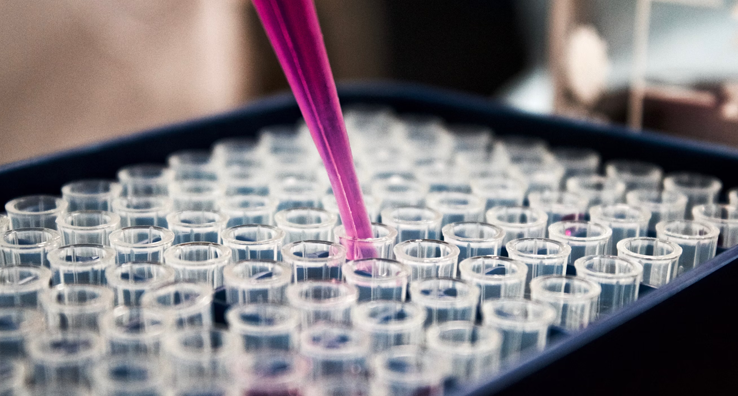Join our experts for our series of webinars covering innovations in bioanalytical or immunogenicity technologies and the latest regulatory expectations from the FDA for immunogenicity testing
As the FDA continues to push forward with the Biologics Effectiveness and Safety (BEST) Initiative, there has been an increased focus on formalizing the CDER Biomarker Qualification Program (BQP) as part of the Drug Development Tools process using recommendations put forth by the Critical Path Institute, their associated working groups; and those in public forums such as the Workshop on Recent Issues in Bioanalysis (WRIB) and American Association of Pharmaceutical Sciences (AAPS) meetings. The cumulation of these recommendations is likely to be incorporated into the revised Biomarker Qualification: Evidentiary Framework; Draft Guidance for Industry due to be released in late 2018.
This webinar will cover the evolving world of biomarker discovery, technical qualification and validation using assay formats such as Ligand Binding Assay (LBA), Liquid Chromatography – Mass Spectrometry (LC-MS) and High-Resolution Accurate Mass Spectrometry (HRAMS), and approaches taken to ensure regulatory compliance.
You will learn how:
- - Bioanalytical Guidance for Biomarkers differs from that performed under different regulatory environments such as Clinical Laboratory Improvement Amendments (CLIA) and College of American Pathologists (CAP).
- - Intertek applies a fit-for-purpose regulatory approach to studies performed using LBA, LC-MS and HRAMS platforms.
- - Intertek approaches the process of biomarker discovery, analytical qualification and analytical validation to ensure regulatory compliance.
Our expert: Stephen Rundlett, PhD, Associate Director of the Biomarkers Program, Intertek Pharmaceutical Services
ON DEMAND WEBINAR
The FDA released an update to the Draft Guidance for Assay Development & Validation for Immunogenicity Testing of Therapeutic Proteins in April 2016. This on-demand webinar outlines how the April 2016 draft document is being used in FDA inspections and the FDA expectations for immunogenicity testing. Specific testing parameters and acceptance criteria will be discussed in depth in addition to 483 issued in the field of immunogenicity and what they mean.
What you will learn:
- - How the Draft Guidance for Assay Development & Validation for Immunogenicity Testing of Therapeutic Proteins is being implemented
- - Expectations by the FDA for immunogenicity testing and interpretation in the draft guidance
- - 483 Observations recently issued and what they mean
Our Expert: George Hristopoulos, Scientific Director, Immunoassay
ON DEMAND WEBINAR
During this on-demand webinar our experts introduce several innovative and non-conventional bioanalysis techniques starting with the use of Liquid Chromatography (LC) - High Resolution Accurate Mass Spectrometry (HRAMS) based protein analyses. This toolset is increasingly needed for drug development, with notable strengths for biologics analyses and basic discovery including an increased understanding of biomarkers.
An introduction to several non-conventional bioanalytical techniques follows, including Nuclear Magnetic Resonance Spectroscopy (NMR), Inductively Coupled Plasma-Mass Spectrometry (ICP-MS) and Selected Ion Flow Tube – Mass Spectrometry (SIFT-MS). These non-conventional approaches are part of a diverse range of analytical techniques that are being utilized at Intertek to meet the demands of increasing complex bioanalytical challenges.
Our Experts: Larry Brill, Senior Scientist, Protein and Bioanalytical LCMS; Anthony Upton, Bioanalytical Laboratory Manager, Europe; Joseph Wicks, Senior Scientist, Intertek Pharmaceutical Services.
ON DEMAND WEBINAR
Our Expert: Morgan Evans, Senior Scientist, Intertek Pharmaceutical Services
ON DEMAND WEBINAR
The US FDA defines a biosimilar as a biological “product highly similar to the reference product without clinically meaningful differences in safety, purity and potency.” In other words, a biosimilar is a copy of an approved version of a biologic drug. There is an increased interest in developing biosimilars for the US and Global markets since many of the first generation biologics’ patents are expiring.
Views about how to approach the development of PK, ADA and NAb assays for biosimilars vary, but what’s the best way? This webinar explores the different options and focuses on the clinical bioanalytical scientific and regulatory aspects of biosimilar drug development. The regulatory aspects, including case studies, will also be discussed.
You will learn:
- - Different approaches to the development and validation of PK, ADA, and NAb assays for biosimilars
- - Recent regulatory feedback on the development of bioanalytical assays for biosimilars
- - Key challenges to the bioanalytical support of biosimilar drug development
Our expert: George Hristopoulos, Scientific Director, Immunoassay, Intertek Pharmaceutical Services
ON DEMAND WEBINAR

